NUS president joins 130 student leaders on landmark Auschwitz educational visit
Shakira Martin joins first-of-its-kind visit to former death camp as part of HET's Lessons from Auschwitz Universities Project with UJS
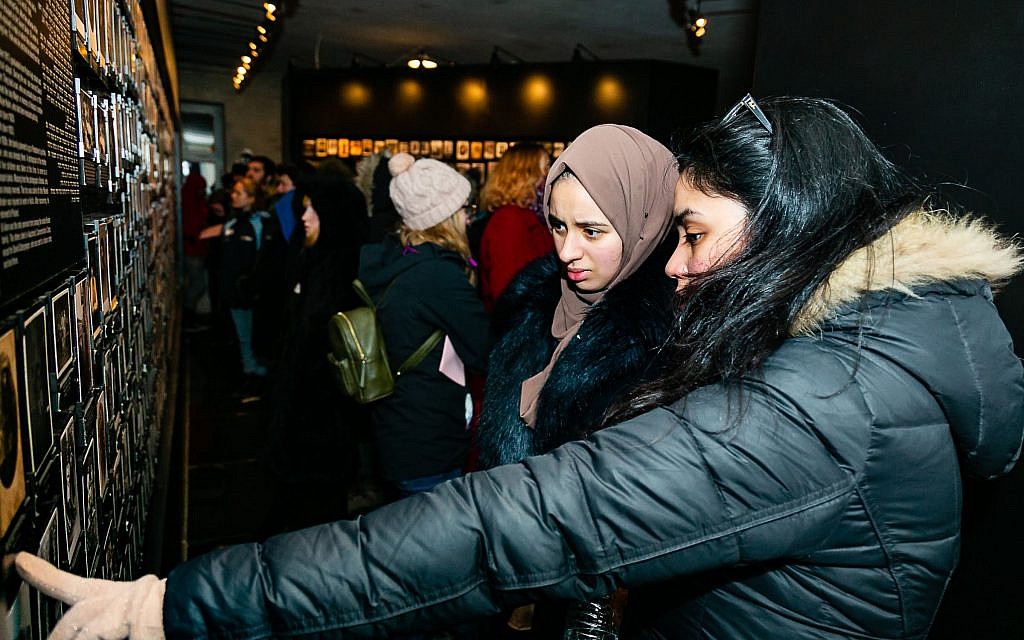 Students on the Holocaust Educational Trust (HET)-UJS Lessons from Auschwitz Universities Project, visiting Auschwitz. Photo credit: Yakir Zur
Students on the Holocaust Educational Trust (HET)-UJS Lessons from Auschwitz Universities Project, visiting Auschwitz. Photo credit: Yakir Zur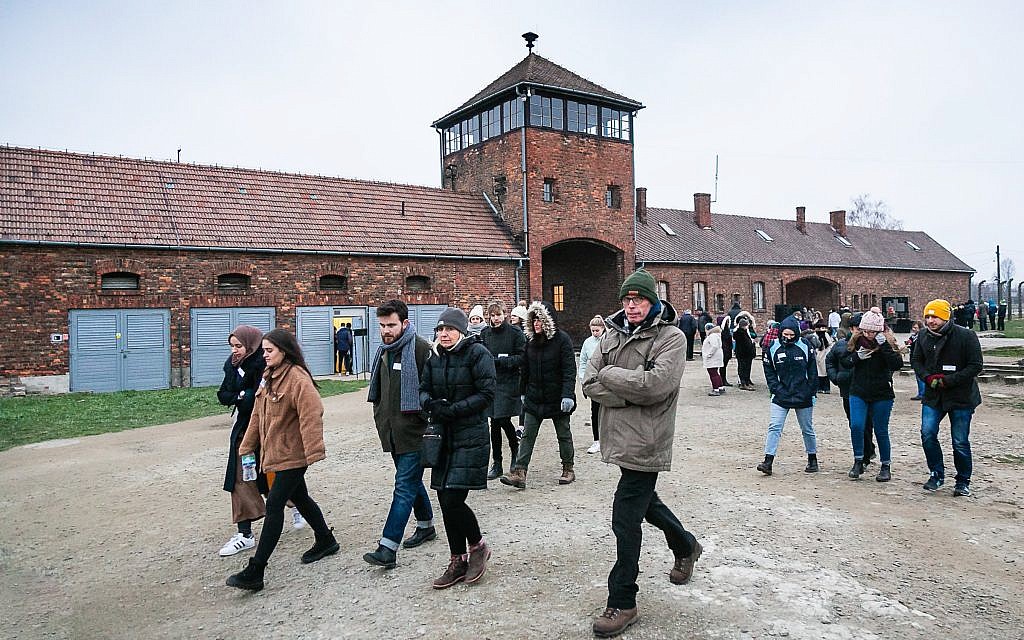 Students on the Holocaust Educational Trust (HET)/UJS Lessons from Auschwitz Universities Project, visiting Auschwitz. Photo credit: Yakir Zur
Students on the Holocaust Educational Trust (HET)/UJS Lessons from Auschwitz Universities Project, visiting Auschwitz. Photo credit: Yakir Zur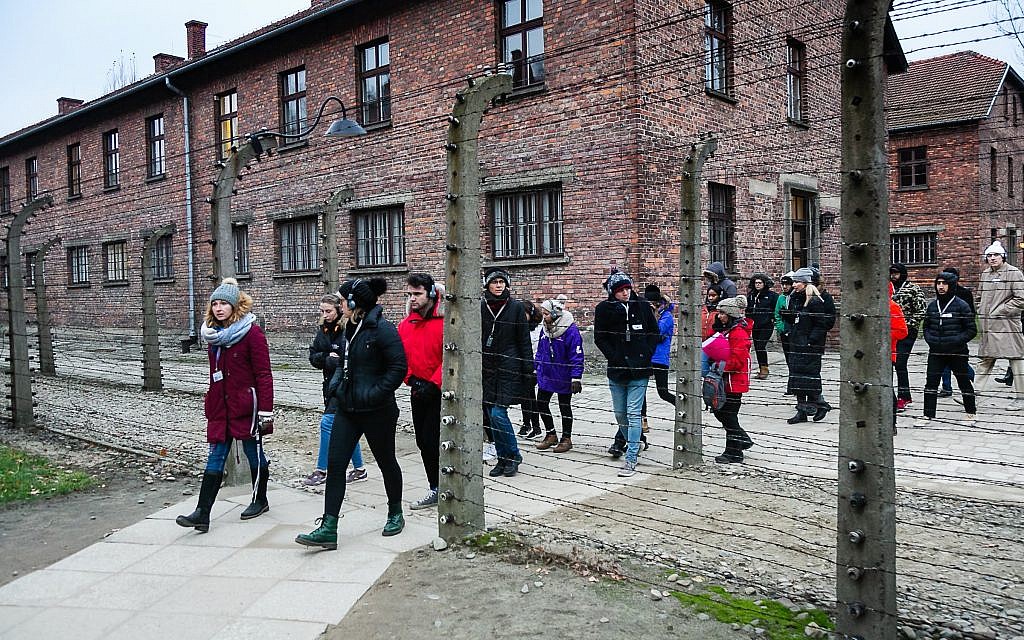 Students on the Holocaust Educational Trust (HET)/UJS Lessons from Auschwitz Universities Project, visiting Auschwitz. Photo credit: Yakir Zur
Students on the Holocaust Educational Trust (HET)/UJS Lessons from Auschwitz Universities Project, visiting Auschwitz. Photo credit: Yakir Zur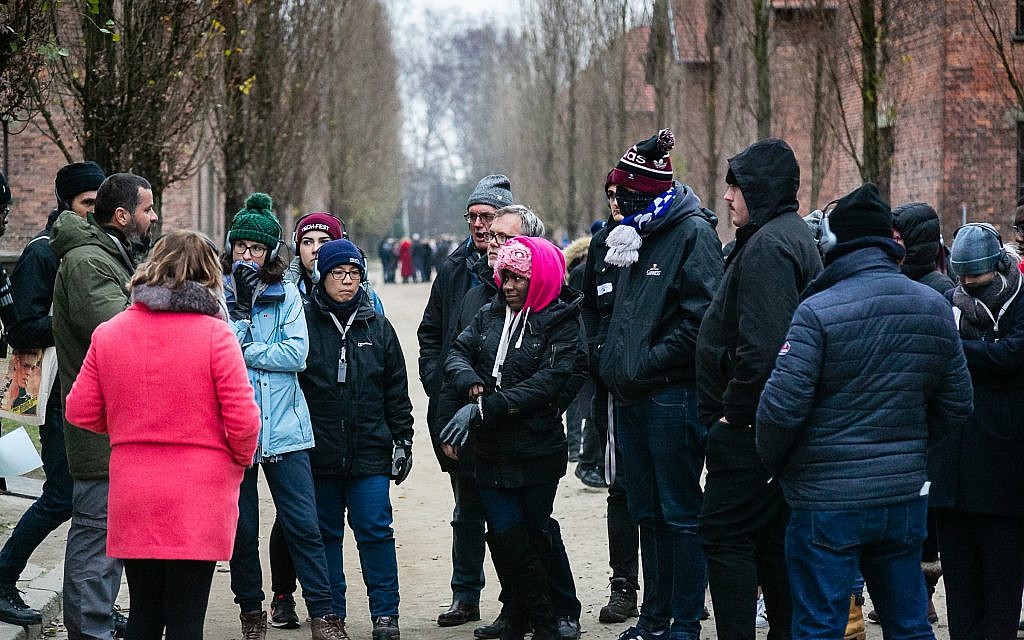 Students learn about the former Nazi death camp from a guide. Photo credit: Yakir Zur
Students learn about the former Nazi death camp from a guide. Photo credit: Yakir Zur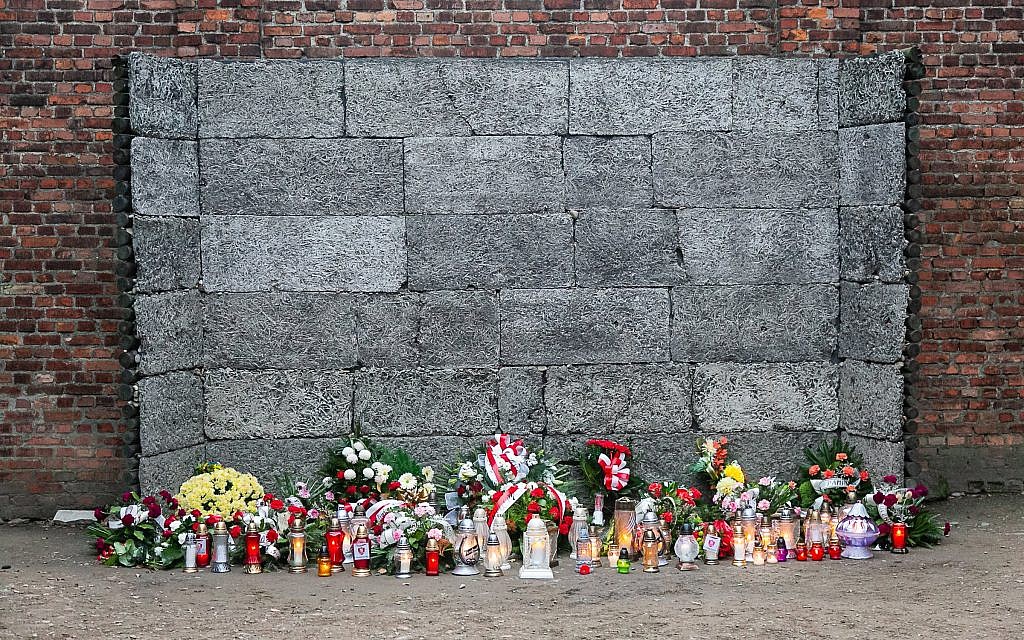 Auschwitz. Photo credit: Yakir Zur
Auschwitz. Photo credit: Yakir Zur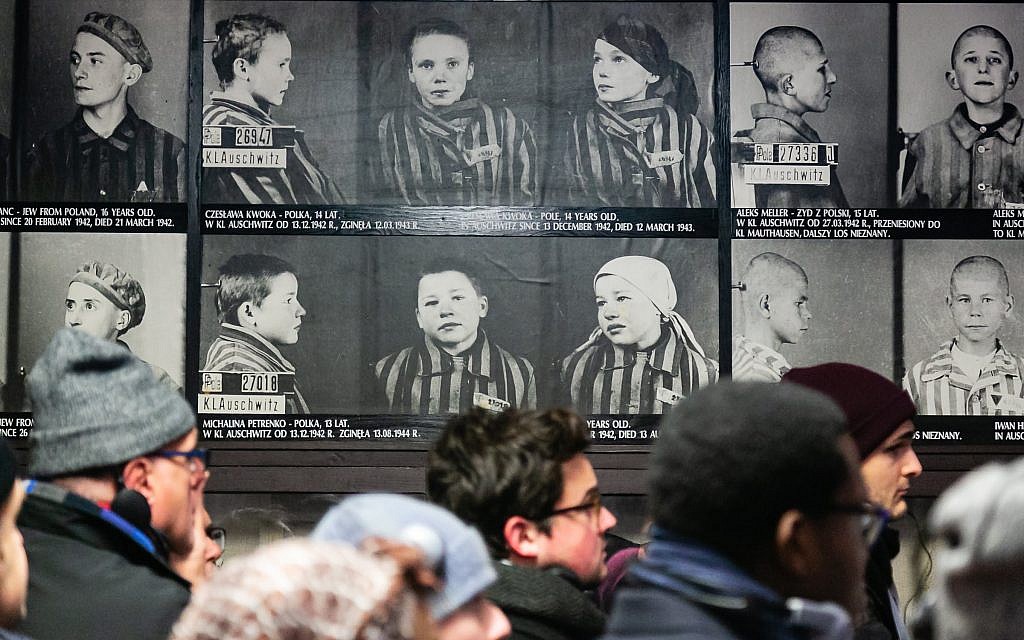 Students on the Holocaust Educational Trust (HET)/UJS Lessons from Auschwitz Universities Project, visiting Auschwitz. Photo credit: Yakir Zur
Students on the Holocaust Educational Trust (HET)/UJS Lessons from Auschwitz Universities Project, visiting Auschwitz. Photo credit: Yakir Zur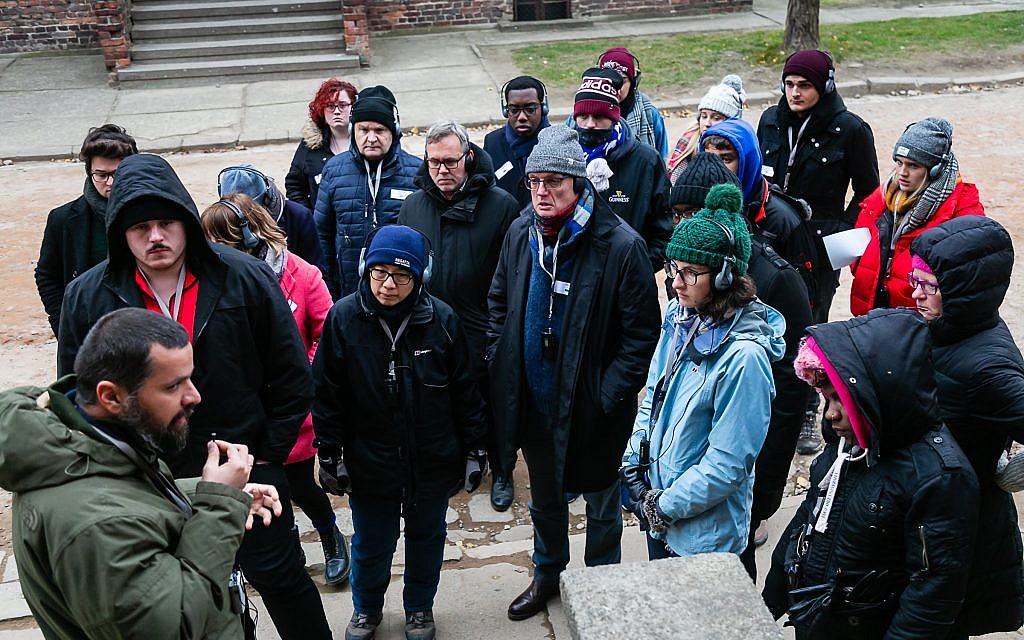 Students on the Holocaust Educational Trust (HET)/UJS Lessons from Auschwitz Universities Project, visiting Auschwitz. Photo credit: Yakir Zur
Students on the Holocaust Educational Trust (HET)/UJS Lessons from Auschwitz Universities Project, visiting Auschwitz. Photo credit: Yakir Zur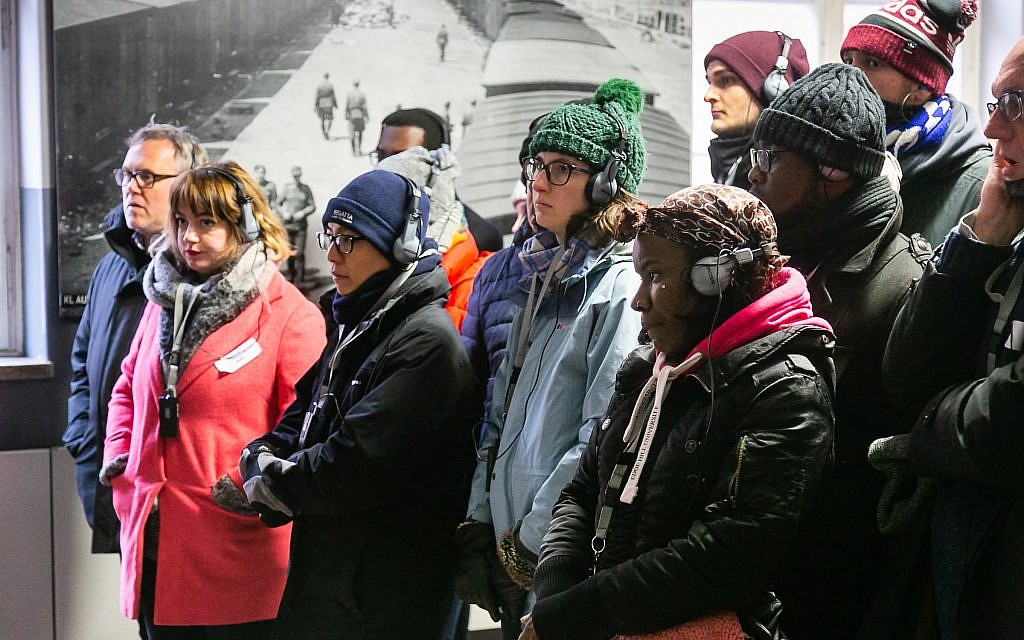 Students on the Holocaust Educational Trust (HET)/UJS Lessons from Auschwitz Universities Project, visiting Auschwitz. Photo credit: Yakir Zur
Students on the Holocaust Educational Trust (HET)/UJS Lessons from Auschwitz Universities Project, visiting Auschwitz. Photo credit: Yakir Zur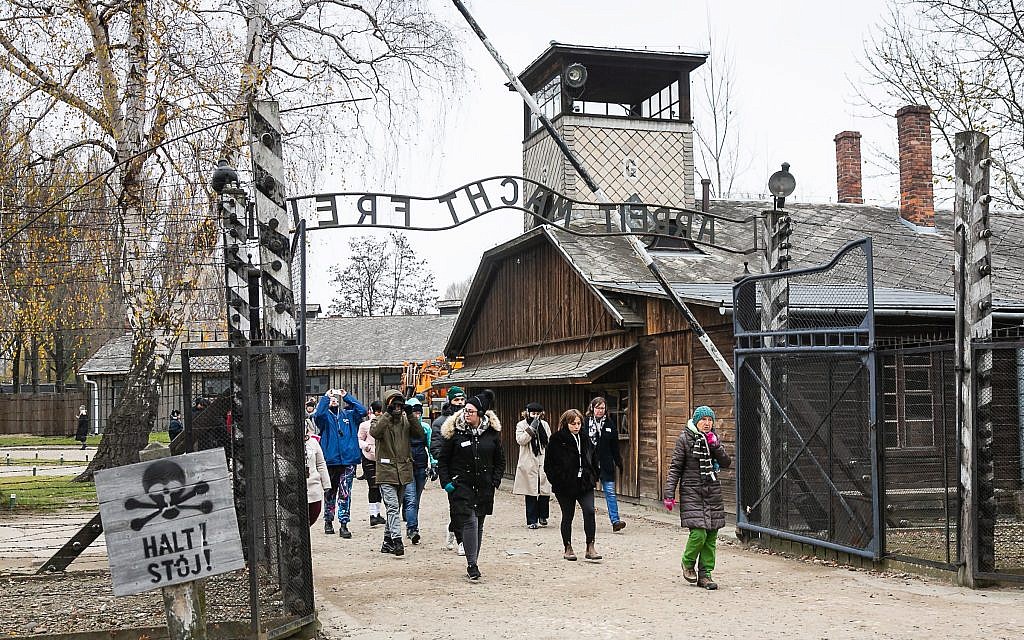 Students on the Holocaust Educational Trust (HET)/UJS Lessons from Auschwitz Universities Project, visiting Auschwitz. Photo credit: Yakir Zur
Students on the Holocaust Educational Trust (HET)/UJS Lessons from Auschwitz Universities Project, visiting Auschwitz. Photo credit: Yakir Zur
Senior leaders and student union sabbatical officers from UK universities learnt not to be bystanders this week as they visited the former Nazi concentration and death camp Auschwitz-Birkenau.
The intense visit was part of the Holocaust Educational Trust’s (HET) Lessons from Auschwitz Universities Project in partnership with the Union of Jewish Students (UJS).
Monday’s visit, where the 132 participants landed in Krakow early in the morning and returned to London late that night, was the first of its kind and came after a seminar where they heard first-hand evidence from a survivor, Susan Pollack.
Get The Jewish News Daily Edition by email and never miss our top stories Free Sign Up
During the visit, participants learned that there is no evidence that any German soldier was shot for refusing to kill Jews – some were sent to the Eastern Front, but others were even later promoted.
“People did have a choice,” one of the HET educators told one group. “They could choose, like Rudolf Hoess, the commandant of Auschwitz, to live a completely ‘normal’ life, going home to his wife and children who lived next door to the camp while overseeing the murder of 1.1 million Jews.
“Or they could choose not to be perpetrators and not be punished for refusing to kill Jews.”
National Union of Students (NUS) president Shakira Martin told Jewish News that she had “learnt so much from the visit”.
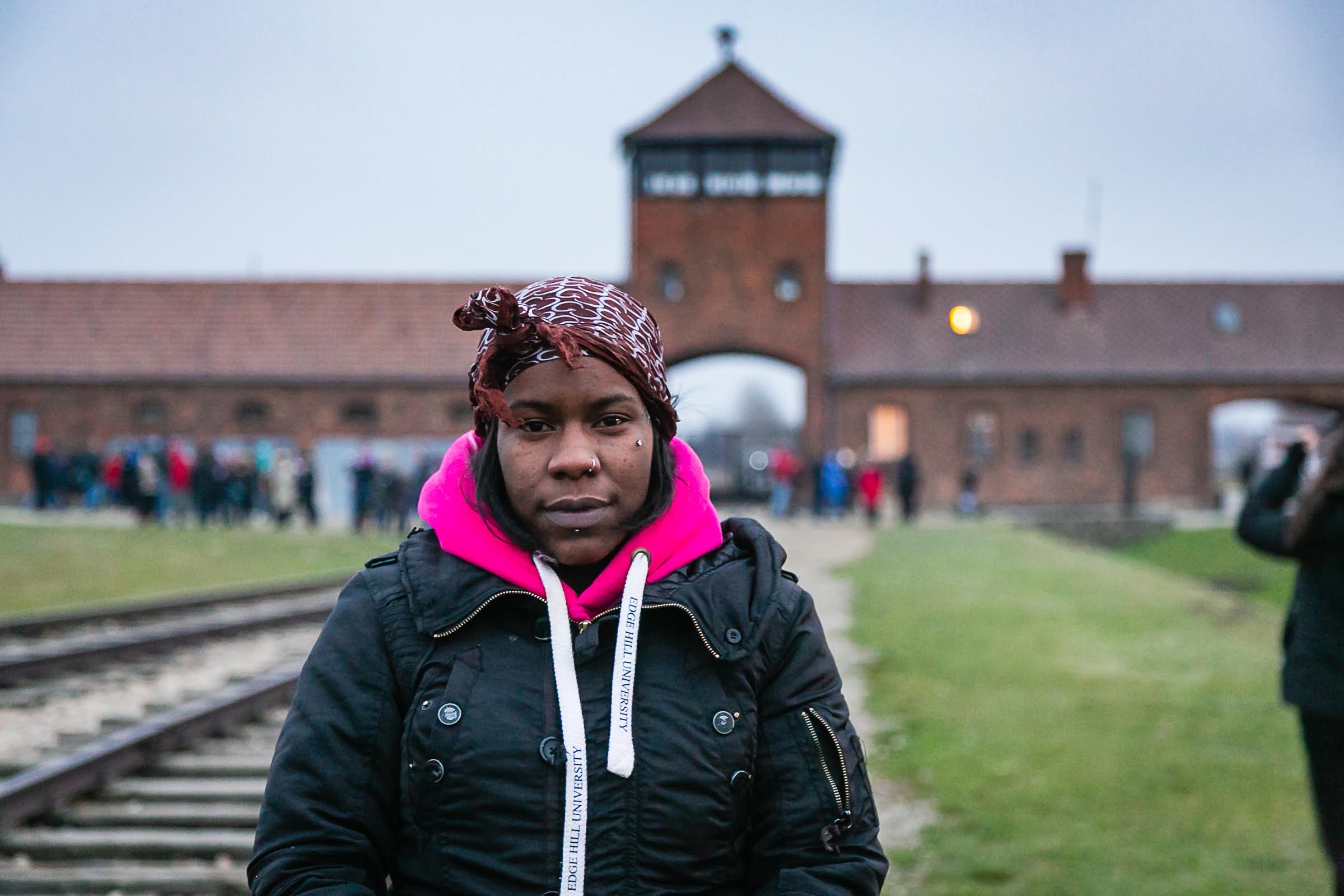
Ms Martin, for whom it was the second visit to the site of the camps, added: “The visit has made me see my part in not being a bystander when evil occurs and to ensure that the stories of survivors live on through all the generations.
“This has been an important visit for student leaders and gives us a better understanding of what happened during the Holocaust, and to ensure than when we return to the UK, we will know how best to support our Jewish students on campus.”
Mohammed Omar Hijazi, the president of the student union of St George’s, University of London, told the JN that what left the most impression on him were the “positive talks by the Holocaust survivors, with their emphasis on learning and tolerance”.
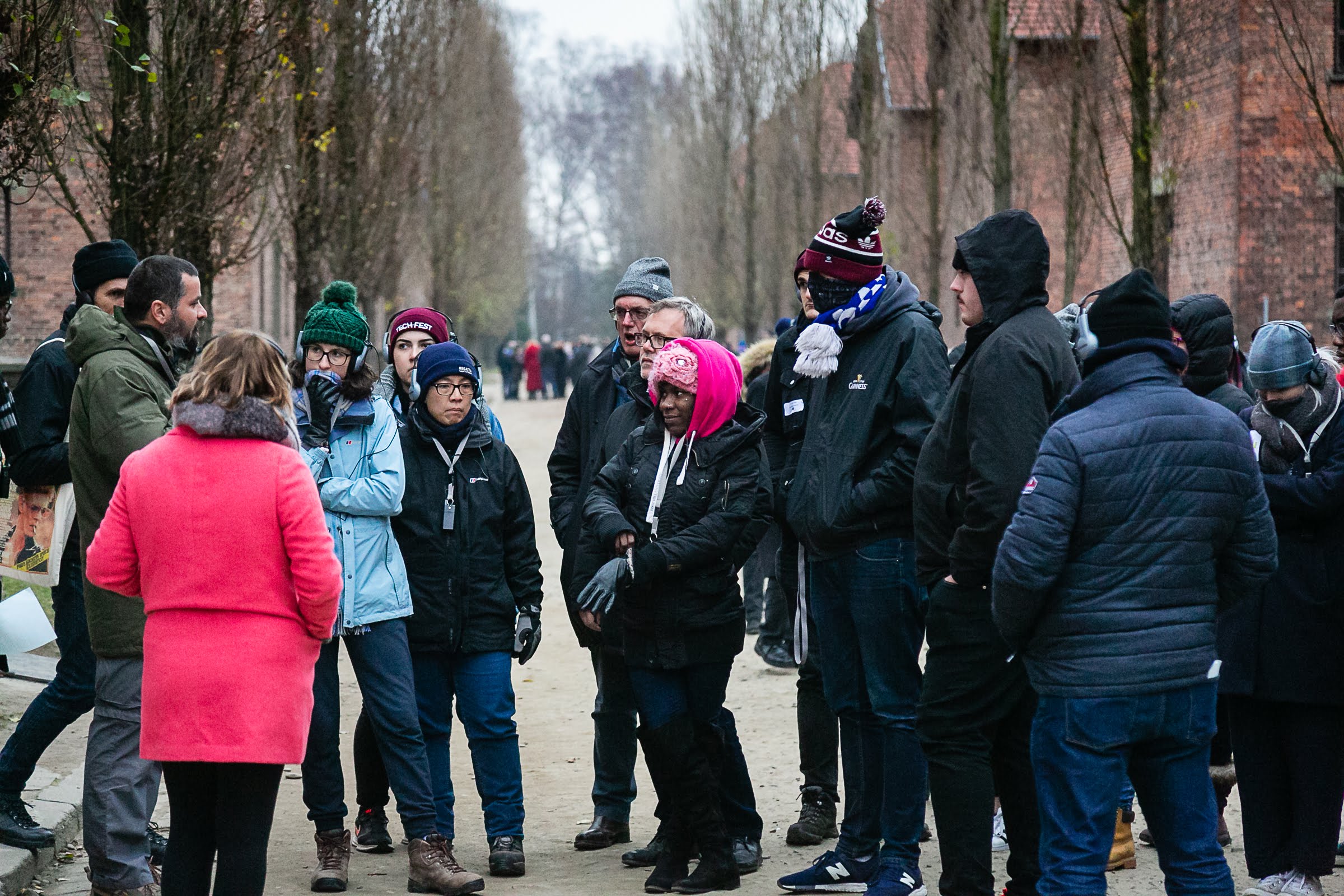
Mr Hijazi, who has a degree in biomedics, echoed the thoughts of many of the participants when he said it was incumbent on the student participants – “the leaders of the future” – to reflect on what happened and “not to promote discrimination on the back of others”.
Karen Pollock, HET Chief Executive, said: “This new Lessons from Auschwitz Universities Project will extend our vitally important work to even more people, empowering these individuals and institutions to use this experience to speak out and consider ways that they can address incidents of racism and prejudice.”
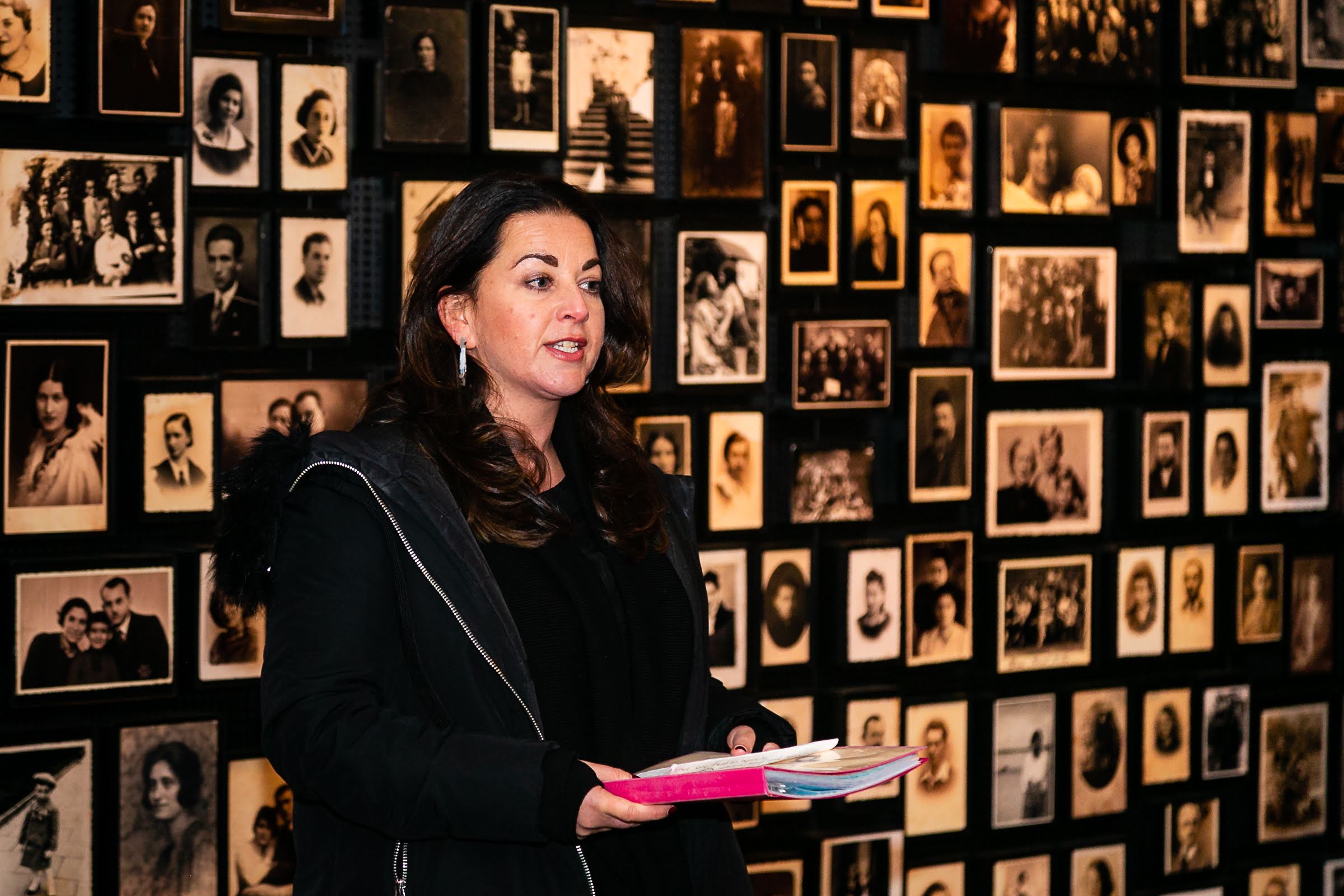
UJS campaigns organiser Daniel Kosky added: “Young people in positions of leadership have a unique responsibility to educate others about the Holocaust, and ensure they do all they can to tackle antisemitism and all forms of hate on campus.”
The project was made possible thanks to a grant from the Ministry of Housing, Communities and Local Government and the Department for Education, which was announced earlier this year by the then Communities Secretary – and now Home Secretary – Sajid Javid.

Thank you for helping to make Jewish News the leading source of news and opinion for the UK Jewish community. Today we're asking for your invaluable help to continue putting our community first in everything we do.
For as little as £5 a month you can help sustain the vital work we do in celebrating and standing up for Jewish life in Britain.
Jewish News holds our community together and keeps us connected. Like a synagogue, it’s where people turn to feel part of something bigger. It also proudly shows the rest of Britain the vibrancy and rich culture of modern Jewish life.
You can make a quick and easy one-off or monthly contribution of £5, £10, £20 or any other sum you’re comfortable with.
100% of your donation will help us continue celebrating our community, in all its dynamic diversity...
Engaging
Being a community platform means so much more than producing a newspaper and website. One of our proudest roles is media partnering with our invaluable charities to amplify the outstanding work they do to help us all.
Celebrating
There’s no shortage of oys in the world but Jewish News takes every opportunity to celebrate the joys too, through projects like Night of Heroes, 40 Under 40 and other compelling countdowns that make the community kvell with pride.
Pioneering
In the first collaboration between media outlets from different faiths, Jewish News worked with British Muslim TV and Church Times to produce a list of young activists leading the way on interfaith understanding.
Campaigning
Royal Mail issued a stamp honouring Holocaust hero Sir Nicholas Winton after a Jewish News campaign attracted more than 100,000 backers. Jewish Newsalso produces special editions of the paper highlighting pressing issues including mental health and Holocaust remembrance.
Easy access
In an age when news is readily accessible, Jewish News provides high-quality content free online and offline, removing any financial barriers to connecting people.
Voice of our community to wider society
The Jewish News team regularly appears on TV, radio and on the pages of the national press to comment on stories about the Jewish community. Easy access to the paper on the streets of London also means Jewish News provides an invaluable window into the community for the country at large.
We hope you agree all this is worth preserving.
-
By Brigit Grant
-
By Laurent Vaughan - Senior Associate (Bishop & Sewell Solicitors)
-
By Laurent Vaughan - Senior Associate (Bishop & Sewell Solicitors)
-
By Laurent Vaughan - Senior Associate (Bishop & Sewell Solicitors)
-
By Laurent Vaughan - Senior Associate (Bishop & Sewell Solicitors)





















